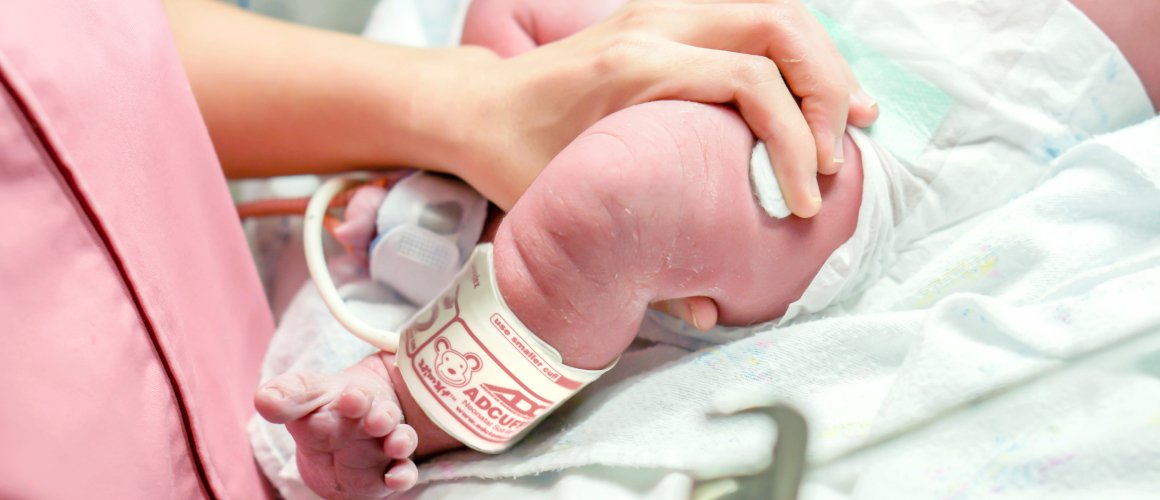- Products
- New Products
- Featured Products
- Color and Print Themes
- Blood Pressure Measurement
- NIBP / Vital Sign Monitors
- Digital Aneroid Sphygmomanometers
- Palm Aneroid Sphygmomanometers
- Pocket Aneroid Sphygmomanometers
- Pro's Combo Sphygmomanometers
- Multicuff Sphygmomanometers
- Clock Aneroid Sphygmomanometers
- Mercury Sphygmomanometers
- Home Blood Pressure Measurement
- Adcuff +
- Gauges
- Bulb & Valves
- Disposable Cuffs
- Reusable Cuffs & Bladders
- Sphygmomanometer Accessories
- Sphygmomanometer Parts
- Caseware
- CPR / Airway
- EENT
- Instruments & Accessories
- Laryngoscopes
- Penlights
- Pulse Oximeters
- Stethoscopes
- Thermometry
- Vital Signs Monitors
- Solutions
- About ADC
- Learning Center
- Support
- Blog
- Contact
Neonatal Nurses Week: Honoring Dedication and Care

Written By:
The ADC Medical Education Team
Posted On:
September 13, 2024
National Neonatal Nurses Week is a special time to recognize the incredible hard work and dedication of neonatal nurses. These healthcare heroes care for the tiniest and often the sickest patients, never shying away from the challenges they face.
Every year in mid-September we celebrate National Neonatal Nurses Week, honoring those who care for the most fragile patients as they take their first breaths. This week falls within National Neonatal Intensive Care Awareness Month, emphasizing the importance of neonatal care.
The Role of Neonatal Nurse Specialists
Neonatal nurse specialists provide critical care to newborns who are delicate at birth due to prematurity, birth defects, infections, surgical issues, or heart problems. They also attend to healthy newborns immediately after birth. According to healthcostinstitute.org, Neonatal Intensive Care Units (NICUs) care for over 300,000 infants each year. The demand for these skilled nurses continues to rise, as they are essential in meeting the needs of the youngest, most vulnerable patients in hospitals. Many of these infants require round-the-clock care, with some needing extended hospital stays. Neonatal nurses provide continuous care throughout their hospital stay and sometimes beyond the neonatal period.
Inspiring Future Nurses
National Neonatal Nurses Week celebrates the dedication and commitment of these professionals. It also serves as an inspiration for those interested in this rewarding field to explore it further. With the growing need for qualified neonatal nurses, encouraging more students to pursue this career is vital for the future of neonatal care.
Becoming a Certified Neonatal Nurse
Aspiring neonatal nurses must first earn their degree, either an associates in nursing (ADN) or a bachelor of science in nursing (BSN), then fulfill the licensing requirements of their state. Because many employers prefer BSN-trained nurses, many ADN-level nurses enroll in RN-to-BSN programs. People with non-nursing bachelor’s degrees can seek accelerated BSNs in as few as 18 months.
New RNs can gain experience by starting in areas where they learn foundational nursing skills in pediatrics and infant care. They can also pursue certifications in neonatal resuscitation or life support. Level I nurseries can provide experience and allow them to move to more acute-care settings.
All neonatal nurses must hold valid RN licenses to practice. They also need to complete continuing education and practice hours to renew their licenses as stipulated by state nursing board requirements.
Neonatal nurse certification can advance nurses’ careers, validate their specialized knowledge, and demonstrate a higher level of clinical competence. Employers may require neonatal nurses to hold certifications to work in NICUs, emergency rooms, and neonatal specialty units. Some states require neonatal NPs to hold certification to get licensure.
Two organizations administer neonatal certifications. The NCC certification requires an active RN license, at least 24 months of RN experience, and a passing score on the qualifying exam. Learn more about earning an RNC-NIC certification.
The AACCN offers certifications for RNs and APRNs, including the critical care RN neonatal specialty certification for nurses who provide direct care to neonatal patients with acute or chronic conditions. This credential requires each applicant to complete 1,750-2,000 hours in direct care and pass the certification exam.
Salary and Job Outlook
After graduating, nurses can seek positions in the field by building connections within professional organizations and clinical placements. Nurses should use career resources offered by their educational institutions, stay on top of job openings in healthcare facilities, and seek professional networking opportunities.
According to ZipRecruiter, as of 2024, neonatal nurses earned an average salary of $128,211. Several factors affect compensation level, including education and experience level, certifications attained, employment setting, and location. Neonatal nurses working in urban areas will likely earn more than nurses in rural communities. As with most RN roles, new neonatal nurses can anticipate a promising job landscape.
